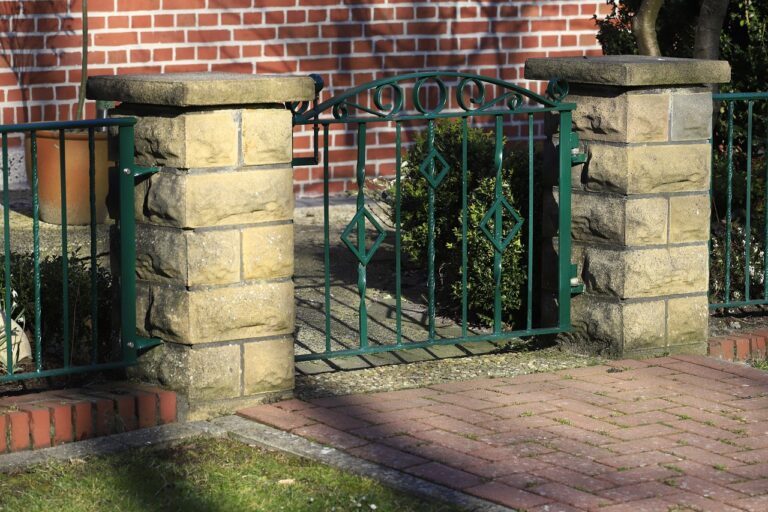The Role of Compaction in Driveway Construction: Betbhai9 com sign up, Radheexchange, Lotus 365.io
betbhai9 com sign up, radheexchange, lotus 365.io: The Role of Compaction in Driveway Construction
When it comes to constructing a driveway, many homeowners focus on choosing the right materials, such as asphalt or concrete, and ensuring proper drainage. However, one crucial aspect that often gets overlooked is compaction. Compaction plays a vital role in driveway construction, as it helps to ensure the stability and longevity of the driveway. In this article, we will explore the importance of compaction in driveway construction and why it should not be overlooked.
What is Compaction?
Before we dive into the role of compaction in driveway construction, let’s first understand what compaction is. Compaction is the process of mechanically increasing the density of soil or aggregate by removing air voids. This process involves using compaction equipment, such as compactors or rollers, to apply pressure to the material, thereby reducing the volume of air between particles and creating a solid, stable base.
The Role of Compaction in Driveway Construction
Now that we know what compaction is, let’s discuss its importance in driveway construction. Compaction serves several crucial roles in the construction of a driveway:
1. Stability: Compaction helps to create a solid, stable base for the driveway. By removing air voids and increasing the density of the material, compaction ensures that the driveway can support the weight of vehicles without sinking or shifting.
2. Preventing Settlement: Proper compaction helps to minimize settlement, which is the downward movement of the driveway surface over time. Settlement can occur when air voids in the material compress under the weight of vehicles or due to changes in the soil’s moisture content. Compaction helps to prevent settlement by creating a dense base that can withstand the stresses placed on it.
3. Improving Drainage: Compaction also plays a role in improving drainage on the driveway surface. A compacted base allows water to flow more easily off the surface, reducing the risk of pooling or standing water that can damage the driveway over time.
4. Longevity: A properly compacted driveway is more durable and long-lasting. Compaction helps to create a strong foundation that can withstand the daily wear and tear of vehicle traffic, as well as changes in weather conditions.
5. Uniformity: Compaction helps to create a uniform surface that is free of bumps or depressions. A smooth, even surface not only looks better but also provides a more comfortable driving experience.
6. Cost-Effective: Proper compaction can save money in the long run by reducing the need for costly repairs or replacements due to settlement or other issues. Investing in compaction during the construction phase can help prevent problems down the road.
How to Ensure Proper Compaction
Now that we understand the importance of compaction in driveway construction, let’s discuss how to ensure proper compaction:
1. Choose the Right Equipment: Selecting the appropriate compaction equipment for the type of material being used is crucial. Different materials require different types of compactors or rollers to achieve the desired level of compaction.
2. Proper Technique: It is essential to use the correct compaction technique to achieve uniform compaction throughout the driveway base. This may involve making multiple passes with the compactor to ensure that all areas are adequately compacted.
3. Moisture Content: The moisture content of the material being compacted is also important. The material should be at the optimal moisture level to achieve maximum compaction. Too much or too little moisture can affect the compaction process.
4. Layer Thickness: Compaction should be done in layers to ensure that each layer is properly compacted before adding the next layer. This helps to achieve uniform compaction throughout the entire base.
5. Quality Control: It is essential to perform quality control tests, such as density tests, to ensure that the desired level of compaction has been achieved. These tests can help identify areas that may need additional compaction.
FAQs
Q: What happens if compaction is not done properly?
A: Improper compaction can lead to settlement, uneven surfaces, and poor drainage, ultimately reducing the lifespan of the driveway.
Q: Can I compact my driveway myself?
A: While it is possible to rent compactors and attempt to compact the driveway yourself, it is recommended to hire a professional contractor with experience in driveway construction for best results.
Q: How long does compaction take?
A: The time required for compaction depends on various factors, such as the size of the driveway, the type of material being used, and the compaction equipment being used. It is best to consult with a contractor to determine the timeline for compaction.
In conclusion, compaction plays a crucial role in driveway construction by ensuring stability, preventing settlement, improving drainage, and increasing longevity. By understanding the importance of proper compaction and following the necessary steps to achieve it, homeowners can ensure the durability and quality of their driveway for years to come.







